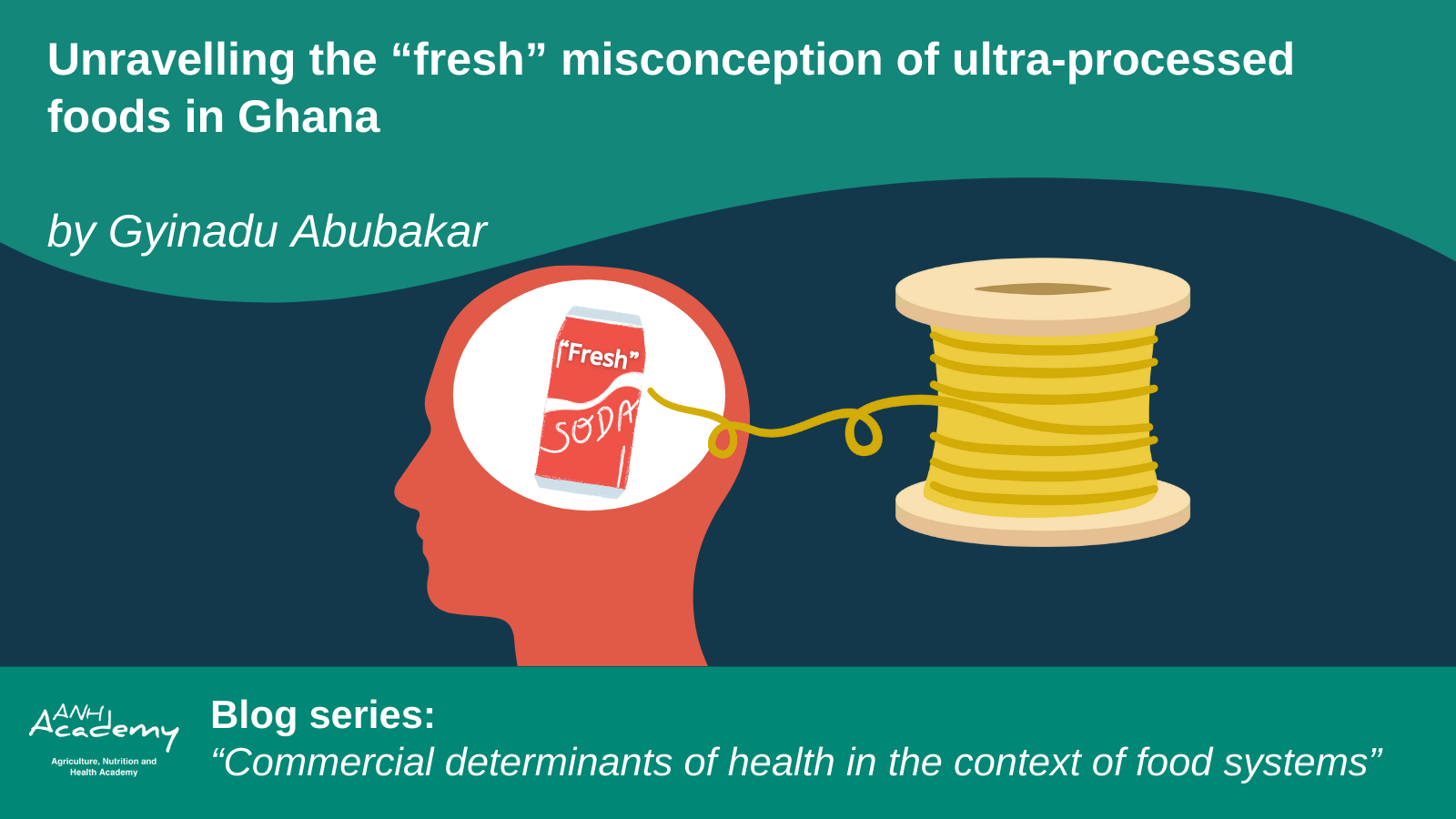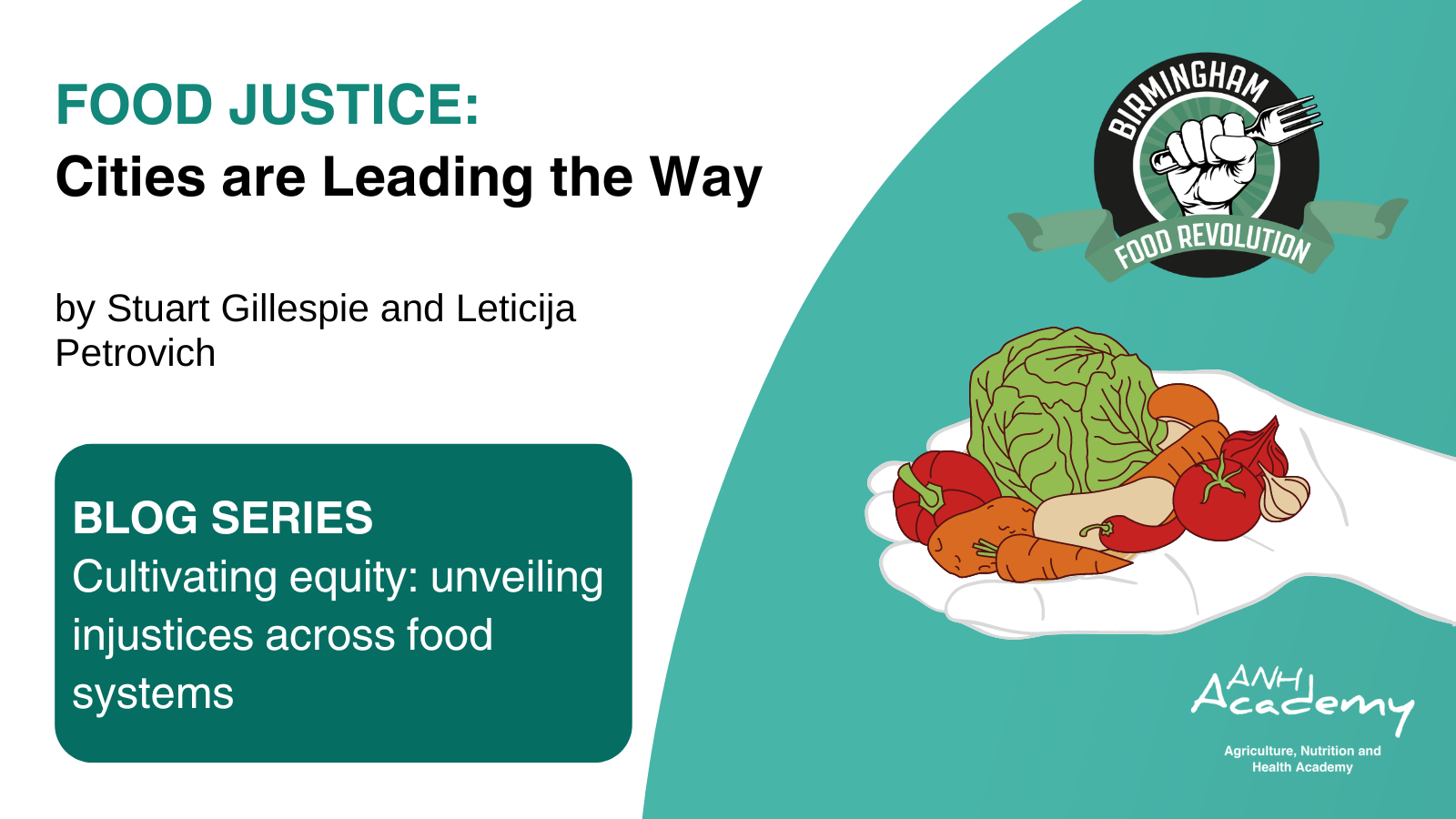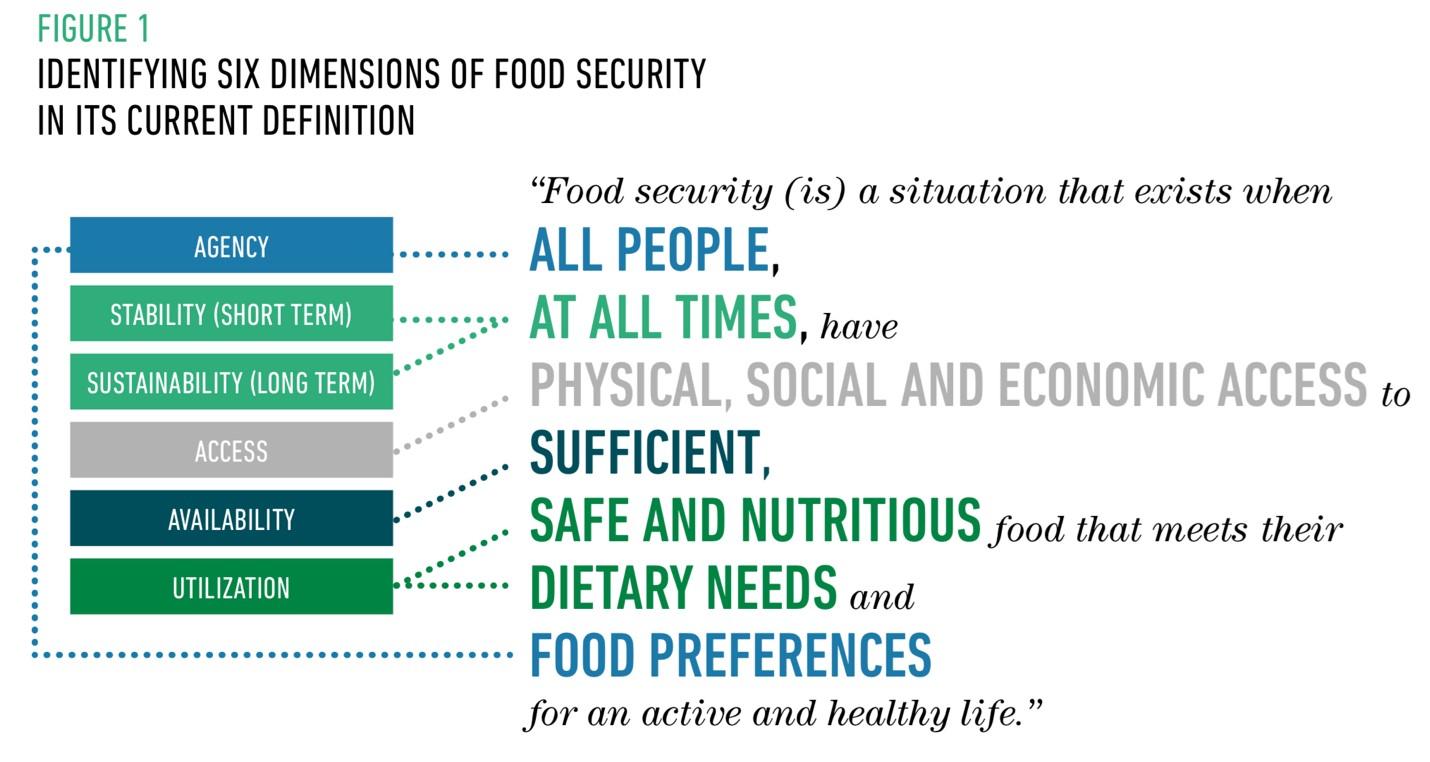
Introduction
There is a popular saying among the Ghanaian youth that goes "if you want to look fresh, eat fresh foods.” It’s important to clarify that in this context “fresh foods” ironically refers to ultra-processed foods (UPFs). Consumption of ultra-processed foods is perceived as a means to achieve a revitalised and youthful appearance. The food companies seem to be feeding into this popular framing to market their products. Various popular fast-food joints in Accra have the message "fresh taste food", and some confectionery product labels exhibit similar inscriptions. Some examples include “fresh” yoghurt, “fresh” soya milk, and chocolate drinks. Addressing this misconception about ultra-processed foods will require informed action.
Are ultra-processed foods truly fresh?
According to the NOVA classification system, ultra-processed foods are foods that have undergone rigorous engineering processes. Additives, sweets, and flavors are often added to enhance their shelf life and attractiveness. As a result, the nutritional value of ultraprocessed foods is significantly lower compared to natural fruits, vegetables, and animal products. I imagine that the “freshness” cited in the popular saying refers to the taste and not the nutritional value of the food, because ultra-processed foods are anything but “fresh”.
Does the consumption of ultra-processed foods make the human body feel or look “fresher”?
As well as being high in trans fats and salt, UPFs contain high levels of refined sugars which contribute to insulin resistance and increases the likelihood of obesity, a major risk factor for type 2 diabetes. There are approximately 2.4 million people living with diabetes in Ghana and nearly 5400 diabetes-related deaths were recorded in 2019. In addition, UPFs consumption has been connected with a higher risk of cancer, low-nutritional level, inflammation and poor mental health and rapid aging disorders, including dry, inelastic, and wrinkled skin. While the concept of looking and feeling “fresh” is somewhat subjective, given the range of health issues associated with UPFs, linking their consumption with this term seems substantially optimistic, if not willfully misleading. The question is, why is something so misleading permitted?
What can be done?
The Ghanaian saying that consuming ultra-processed foods equals looking more youthful is a clear case of misconception fueled by misinformation. This issue demands more than just correction; it requires comprehensive action guided by scientific evidence. Here are some suggestions with steps that can be taken by different stakeholders:
Boosting nutritional awareness and education
Practitioners should focus on interventions aimed at improving nutritional awareness and education among the public.
Fighting misinformation: a call for regulatory collaboration
The National Media Commission, as a matter of urgency, should collaborate with the Food and Drugs Authority (FDA) to combat false or fake information on ultra-processed foods in the media space. All forms of advertising and labels concerning ultra-processed foods must be vetted and approved by the FDA. The National Media Commission Act 449 (1993), the Public Health Act 851 (2012) and the Food and Drugs Act 1992 (P.N.D.C.L.305B) should be amended to provide the necessary legal framework. These amendments are necessary because the existing legal frameworks are vague and can easily be abused. Such amendments would ensure that the cover of the "book" actually aligns with its content.
Empowering youth through nutritional literacy
Within the school environment, the Ghana Education Service (GES) can promote nutritional literacy among school-going adolescents who are at the forefront when it comes to the consumption of ultra-processed foods. The GES can further encourage the formation of nutrition clubs and the election of nutrition prefects in public schools to raise awareness.
Making use of social media for health education
Considering that the vast majority of young individuals are on social media,these platforms can be used to promote nutritional literacy among the youth. For instance, the media, civil society groups, ministries, agencies, and concerned citizens can initiate discussions or conversations around ultra-processed foods using hashtags. These discussions will go a long way to shape public opinions and perceptions about ultra-process foods and their impacts on public health.
Study the youth's literacy level
Further research should examine the level of nutritional literacy among Ghanaian youth to understand their attitudes, perceptions, and framings around ultra-processed foods.
To conclude, the popular misconception in Ghana of associating ultra-processed foods with a more youthful “fresh” appearance necessitates a comprehensive, evidence-based policy response. A unified approach is essential to mitigate the devasting impacts of ultra- processed foods on youth, preventing the situation from escalating further.
Call for blogs: Commercial determinants of health across food systems
Interested in the impact of commercial determinants on human and planetary health? Join the conversation! Between September and December, we are welcoming blogs from around the world on the commercial determinants of health in agriculture-food systems. Blog length can vary from 200 to 1000 words. Read out our blog writing guidelines for tips on crafting a compelling piece. Your insights could be the spark that drives positive change.
Submit a blog idea; we're open to suggestions! More information here.





